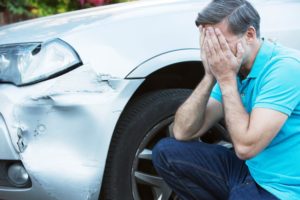 If you are in an accident in a leased car your first concern should be the safety of yourself and your passengers. Then you should worry about documenting and gathering information for your claim. The final thing you’ll want to do is call your insurance company and turn in a claim.
If you are in an accident in a leased car your first concern should be the safety of yourself and your passengers. Then you should worry about documenting and gathering information for your claim. The final thing you’ll want to do is call your insurance company and turn in a claim.
A lot of our customers worry that if they are in an accident in a leased car that it will be treated differently. There are some slight differences, but all in all it’s the same as a car you own.
If Your Leased Vehicle is Repairable
You’ll want to choose the right body shop to make sure the repair work is to factory standards. Often your insurance company or your car dealer can refer you to a shop that will be able to repair your car in a fashion that you won’t be able to tell that it’s been in an accident.
A lot of leases require that the car be repaired with only factory OEM parts. This can be in conflict with your insurance policy that is written to replace with the least expensive part. If this happens you can pay the difference of the factory part and the part the insurance company uses. That way you are complying with the terms of the lease. However, if the part is truly a good replacement part, your leasing company will never question you on the type of parts.
Leased Car Accident Reported to Carfax
Some accidents get reported o Carfax and can cause what the industry calls diminished value. Diminished value is the difference of the value of your car vs one that was not in an accident.
One of the beauties of the leased vehicle is that you are only required to fix the damage. You are not responsible for any diminished value to the vehicle.
Even if your car is turned into Carfax for being in an accident, they value will not be effected.
If Your Leased Car is a Total Loss
If your leased car is deemed a total loss, the insurance company will usually pay off the amount you owe on your car. However, if the payoff is greater than the insurance company gives you for your car, you will be liable for the difference.
When you owe more on your car than it is worth you should make sure you have “Gap Insurance”. Gap insurance is exactly what it sounds like, in that it pays for the difference to what you owe the bank or leasing company and what the insurance will pay. Some gap policies may even pay your deductible.
People get really upset when the insurance company doesn’t pay what they owe on their vehicle. But, the reality is that they only owe what the average value of your car is. If you paid too much or the car has depreciated too quickly, it’s not their responsibility. You will want to calculate for yourself if there is a gap between what you owe and the average price of a replacement car in similar condition. If you find there is a shortfall, that’s when you’ll want your gap insurance to kick in.
For an example, You buy a car worth $40,000 and six months later the car is in an accident and deemed a total. The used value might only be $30,000. If you owe $35,000 and the insurance pays $30,000, there is a short fall of $5,000. That’s where gap insurance comes in.
If you have been in an accident in a leased vehicle in Northern California in Auburn, Loomis, Chico, Paradise, Red Bluff or Woodland stop by a Collision Pros location and we will help you work through the process.

important source
What Happens if I have an accident in a Leased Car? ~ Collision Pros
find out
What Happens if I have an accident in a Leased Car? ~ Collision Pros
http://www.leefriendstreeservice.com
What Happens if I have an accident in a Leased Car? ~ Collision Pros
myturbopc
What Happens if I have an accident in a Leased Car? ~ Collision Pros
http://www.axciumdogspa.com/
What Happens if I have an accident in a Leased Car? ~ Collision Pros
http://www.atlantatractortrailerparking.com/
What Happens if I have an accident in a Leased Car? ~ Collision Pros
visit our website
What Happens if I have an accident in a Leased Car? ~ Collision Pros